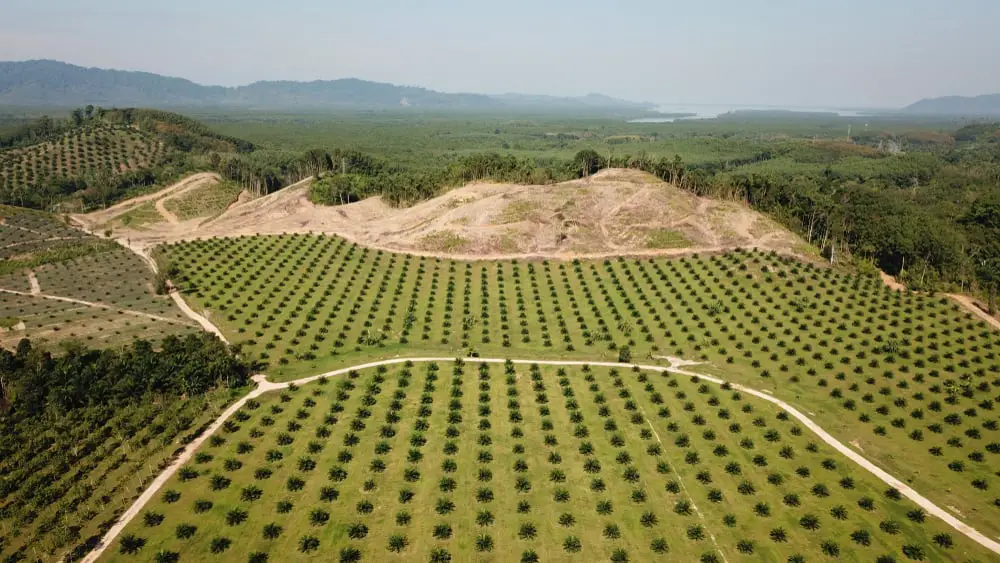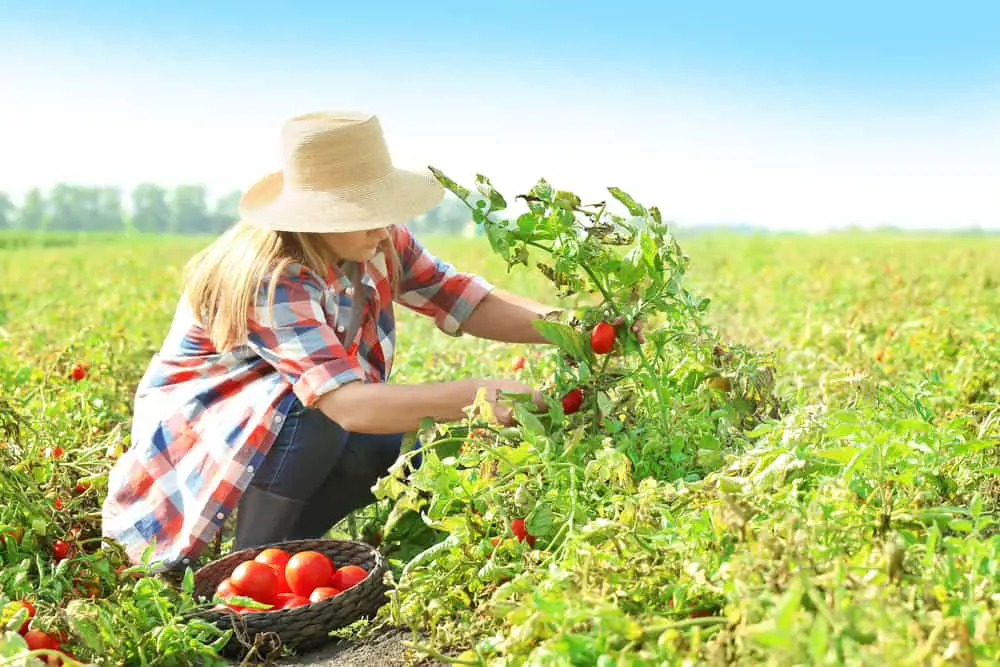Cruelty-free products are becoming more and more popular as the quest for a kinder and greener planet continues. If you are trying to switch to a cruelty-free lifestyle – start with the basics.
Even though a vegetable doesn’t have feelings and cannot experience pain – doesn’t mean it’s a cruelty-free food and we’re going to explain why right here.
Vegetables are not sentient beings, so eating them is not cruel at all. However vegetable harvesting is considered unethical rather than cruel due to mass farmed crops taking up habitats, the use of animal testing for trials, unfair labor exploitation and the use of pesticides.
In this article, you'll learn why the vegetables you eat are ofen harvested in unethical ways. You'll also learn the best ways to choose vegetables that are cruelty-free the next time you go shopping so that you can feel good about what you're feeding yourself and do a solid favor to the evironment.
Is Eating Vegetables Cruel?
As we mentioned above, eating vegetable is not cruel. Plants don't feel pain, so there is no way for you actually to hurt the vegetable as you're eating it. And if you want to know the research behind this, you can find all your answers right here: Is It Cruel to Eat Plants
Vegans choose plant-based options as substitutes for meat and dairy precisely for this reason. Theoretically, a cow would feel pain as you were milking or killing it. But, since plants are plants and don't feel pain, they are fair game.
Yes, milking cows can be considered animal cruelty depending on how it’s done. So if you love to add a dash of milk to your coffee or over your cereal – you can find out which alternatives are more ethically here: Can Milk Be Cruelty-Free
Does Cruelty-Free Only Apply to Animal Products?
Cruelty-free labels do not only apply to animal products. Instead, cruelty-free refers to any product on the market that has not been tested on animals. This is why vegetables themselves may not be completely cruelty-free.
Some laboratories conduct testing on animals for certain things. For example, suppose a scientist suggests that corn has healing properties. In that case, some laboratories will inflict wounds on animals—usually rats or bunnies—and then force-feed them corn to see if it aided the healing process at all.
Though the FDA does not require animal testing on all personal care products, the organization does use animal testing for new drugs, some of which contain vegetables, especially if it is a dietary supplement.
If you are vegan or vegetarian and this topic has left you feeling shaken – please don't worry. There are solutions to your concerns and we recommend reading these two articles to find out more:
Vegetables May Not be Completely Cruelty-free
Beyond that, vegetables aren’t always harvested in the most ethical ways. In areas of industrialised farming where vegetables are mass-produced – spaces are entirely occupied and leave little to no room for any species that may have lived in that space as their natural habitat.
Though this is not technically cruel for the vegetables – it's cruel to the animals that face sudden eviction.
In the picture above, you can see a large palm oil plantation in Southeast Asia, where a huge amount of deforestation was needed to make space for this farmland.
Mass-farmed crops are also considered cruel for the environment by some standards because they can wreak havoc on the soil they're planted in, causing death to the local insect population and local flora or fauna.
Some plantations and mass grown crops ensure a plentiful and cost-effective yield by:
Pesticides
Pesticides also play a big part in determining whether vegetables are cruelty-free. Some brands are certified organic but can still contain small amounts of pesticides.
Unfortunately, a mass-marketable cruelty-free pesticide has yet to be verified or even spoken about by the very people that can make it happen.
Therefore, pesticides maintain a big role in industrialized farming to keep the bugs and animals from getting into the farms and eating the prized produce.
The best thing that you can do before you buy a vegetable from your local grocery store, is to be sure that the product is verified as both organic and ethically grown.
Unfair Labor
Unfair labor is rampant throughout the farming industry. Companies will employ workers below the minimum wage and force them to work long, hard hours harvesting in the fields. This same practice is found for both fruit and vegetable plants.
While this does not necessarily mean you're directly being cruel by eating the fruits and vegetables – it does mean that the produce was obtained in a cruel way.
There was even a Supreme Court Case centered around just this. Titled Labor Board v. Fruit Packers, the case took place because protestors were picketing and boycotting certain grocery stores selling Washington apples. The production plant was mistreating workers.
The National Labor Board took the picketers to court in an attempt to silence them. But the picketing was ultimately deemed constitutional and lawful.
Workers in Washington apple plants still frequently speak up about continued mistreatment, years after it was made public in light of the Supreme Court case.
Child labor is also seen across the fruit and vegetable industry worldwide. And orchards, especially in the southern United States, have been known to employ undocumented immigrants and pay them far less than minimum wage.
How to Make Sure Your Vegetables are Cruelty-free
Unfortunately, there is no real way to know whether or not your mass-produced vegetables were obtained ethically. With evolving labor laws in the US, child labor has certainly declined, but it still exists, especially in other countries. Unfair adult labor, however, is still rampant across the world.
If you're looking for a way to know if your food uses pesticides, most brands will disclose that on the label or package of the vegetables you're trying to buy.
Typically, you'll find that the organic brands are free from things like pesticides and GMOs (Genetically Modified Organisms), while non-organic brands of vegetables are not.
If you want it all: pesticide-free, unfair labor-free, and not harmful to whole habitats, you can always plant your own garden.
That way, you know exactly what goes into your soil, whether or not there were pesticides on your produce, and you know that the vegetables in question were not harvested through unethical practices. And another huge benefit is that you might even save some money.
You can take advantage of gardening in a lot of different ways, including:
What's Being Done to Make Vegetables Cruelty-free?
As brands see people searching for more cruelty-free feel-good products, they really are adapting.
Many vegetable brands have begun to either abolish their unethical labor practices altogether or, at the very least, severely cut down on them. When a business is so profoundly rooted in corrupt practices, it does take time to readjust.
Alternatives to pesticides are being created and tested frequently. However, they are still very much in their trial-and-error stage, as scientists try to figure out what works and what doesn't.
If you have to buy mass-produced veggies and being pesticide-free is crucial to you, your best bet is to go for an organic option.
More and more people every year are taking advantage of gardening on their own and producing their own vegetables. Community gardens are also becoming commonplace in several cities.
With the increase and availability of various farmer's markets, where you can go and purchase produce that has been grown locally, on small farms, and harvested ethically, you have many more options to fulfill your produce shopping pleasure.
In Conclusion
Vegetables are not like animals; you can't be cruel to them. But you absolutely can be inadvertently supporting cruelty and unethical practices and companies because of them.
That is not truly your fault; you, as one consumer, have no power over what a brand may be doing, but you do have the power not to support them.
By growing your own vegetables or buying from local farmers or farmers markets that are hosted near you, you are making sure that you're buying vegetables that can be considered "cruelty-free."
Besides, you're supporting small businesses instead of brands that do engage in cruelty to put veggies on your table.


